Not only possessing a cool climate all year round, Mang Den also attracts tourists by the poetic beauty of quiet lakes, majestic waterfalls and vast primeval forests.
Mang Den attracts tourists with its tranquil lakes, majestic waterfalls and legendary stories.
PHOTO: BAN NGUYEN
Land of the Gods
Mang Den still retains the pristine and simple beauty of a newly awakened land. The forests stretch endlessly. The villas are hidden under the tree canopy. All create a strangely quiet space.
Since ancient times, the Mo Nam people have passed down stories about a sacred land, the residence of gods. According to Mr. Dang Dinh Toan, Head of the Department of Culture, Science and Information of Kon Plong District, Mang Den was originally named T'Mang Deeng. In the Mo Nam language, "T'Mang" means place to live, "Deeng" means god, T'Mang Deeng means the residence of gods.
Legend has it that in the beginning, T'Mang Deeng was just a wild forest, mountains and hills, without a single human footprint. From the heavens, Plinh Huynh, a supreme god with the power to create all things, felt sorry for the fertile land but lack of people, so he sent his 7 sons down to earth to reclaim and establish villages. Obeying their father, the 7 handsome young men descended to earth, reclaimed the wild land themselves, built gardens and fertile fields.
Dak Ke Lake is as blue as a highlight in the middle of a vast pine forest.
PHOTO: DUC NHAT
When the 7 sons reached adulthood, Plinh Huynh personally descended to earth. He went to all the villages, looking for beautiful, virtuous, and skillful girls to marry each son. After a grand wedding ceremony in the mountains and forests, the 7 couples divided the land, built villages, and gave birth to 7 prosperous villages around the T'Mang Deeng area. The 7 sons were then appointed as 7 gods, each ruling a village. The wives also transformed into sacred animals representing species such as pigs, deer, fish, lizards, etc. In order to maintain harmony between humans and all species, god Plinh Huynh commanded his sons to make a sacred oath: for the rest of their lives, they must not kill or eat the species their wives represent. Anyone who violates will be punished.
In the beginning, every year, the 7 gods flew back to heaven to report to their father. But the longer they lived on earth, the more they were attached to the human world. Then one year, they did not return. The villages gradually prospered, the granaries were full, the wild animals were fat, and people lived happily. Until one Deeng festival, all 7 villages held a big festival. Throughout the villages resounded with the sounds of gongs, singing, fragrant rice wine, and the cymbals spinning around the towering pole. In the drunkenness, amidst the bustling sound of drums and gongs, the 7 sons forgot their oaths of the past. They joined in the joy, not refusing any of the delicious and strange dishes that the villagers offered, including species that were sacred animals, the incarnations of the wives that their father had given them.
Mang Den hidden in the morning mist
PHOTO: BAN NGUYEN
From the blue sky, Plinh Huynh looked down, angrily sending down heavenly fire bolts. Thunder boomed in the clear sky. Lightning tore through the sky. Sacred fire poured down, burning down the village in an instant.
The ground beneath the seven villages shook and collapsed, forming giant craters. From underground, smoke and lava surged up, glowing red like pillars of fire from the sky. Lightning bolts from Plinh Huynh's rage shot into the cliffs, forming three large waterfalls that poured down like a cry tearing through the mountains and forests. The fierce water flowed over, extinguishing the fire that was burning the village, then turned into seven clear lakes in the middle of the forest. Later generations named the seven lakes after the seven young men: Toong Dam, Toong Rpong, Toong Zo Ri, Toong Ziu, Toong Sang, Toong Li Lung and Toong Po. The three sacred waterfalls were named Pa Sy, Dak Ke and Pne.
Since that day, the Mo Nam people survived and rebuilt their villages, continuing to pass down the story as a warning to keep their oaths and not betray sacred things.
Mang Den is a small, quite wild town of Kon Plong District ( Kon Tum ).
PHOTO: DUC NHAT
Memorable and profound experience
Mr. Pham Van Thang, Vice Chairman of Kon Plong District People's Committee, said that Mang Den is gradually becoming an attractive destination on the Vietnam tourism map. With its potential for eco-tourism and culture, this place is being invested and developed to bring unique experiences to visitors. Besides exploring nature, visitors also have the opportunity to learn about the unique culture of ethnic minorities and enjoy the specialties of the highlands.
In 2024, Mang Den Eco-tourism Area welcomed 1.2 million visitors, bringing in revenue of more than 420 billion VND. Mang Den is not only a simple tourist destination but also a place to preserve unique cultural and historical values. With its wild natural beauty and fascinating legendary stories, Mang Den promises to bring visitors memorable and profound experiences about the majestic Central Highlands.
According to Ms. Bach Thi Man, Deputy Director of the Department of Culture, Sports and Tourism of Kon Tum province, in order to develop Mang Den into an attractive destination of the Central Highlands, creating a driving force for socio-economic development for Kon Tum province, in 2024, the Prime Minister approved the master plan for the construction of Mang Den tourist area. Accordingly, the planning scope of Mang Den tourist area has an area of over 90,000 hectares. This place will exploit the advantages of climate, natural landscape and traditional culture to develop economic and tourism activities. (continued)
Source: https://thanhnien.vn/nhung-tuyet-tac-thien-nhien-mang-den-xu-so-than-tien-185250512220219333.htm


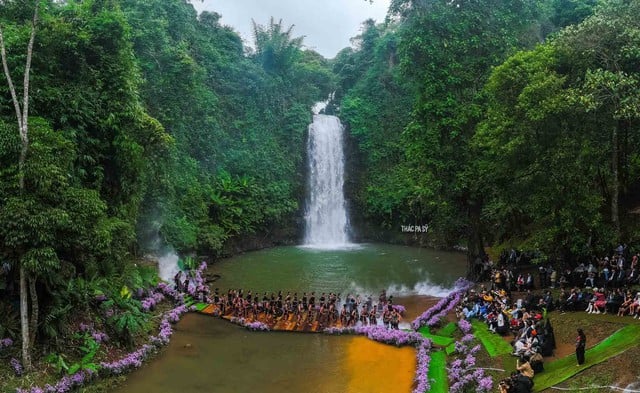
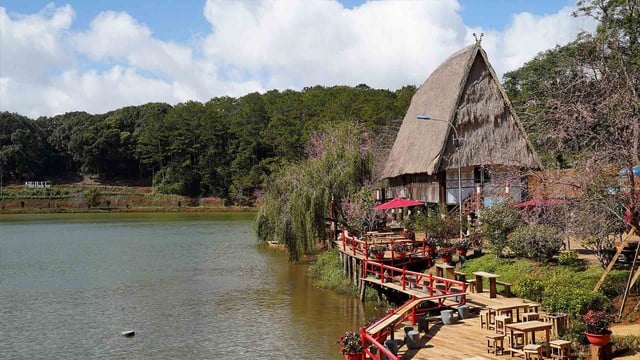
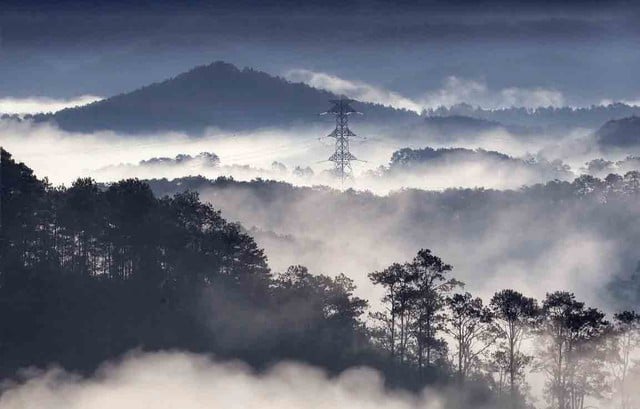
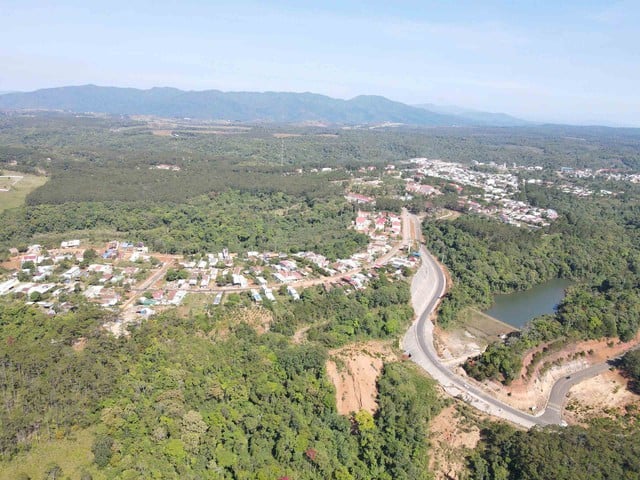

![[Photo] Anh Hoang - Dinh Duc successfully defended the men's doubles championship of the National Table Tennis Championship of Nhan Dan Newspaper](https://vphoto.vietnam.vn/thumb/1200x675/vietnam/resource/IMAGE/2025/5/23/d6ab3bcac02c49928b38c729d795cac6)
![[Photo] Top players gather at the 2025 Nhan Dan Newspaper National Table Tennis Championship](https://vphoto.vietnam.vn/thumb/1200x675/vietnam/resource/IMAGE/2025/5/23/9ad5f6f4faf146b08335e5c446edb107)






![[Video] Launch of the publication "The Teacher and the Books"](https://vphoto.vietnam.vn/thumb/402x226/vietnam/resource/IMAGE/2025/5/23/f8b7526776a44a57b0d4d9213c0c660d)































































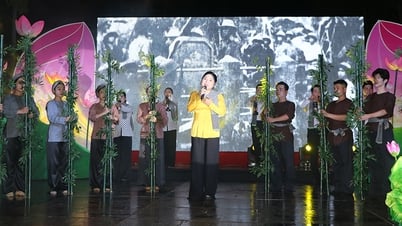














Comment (0)